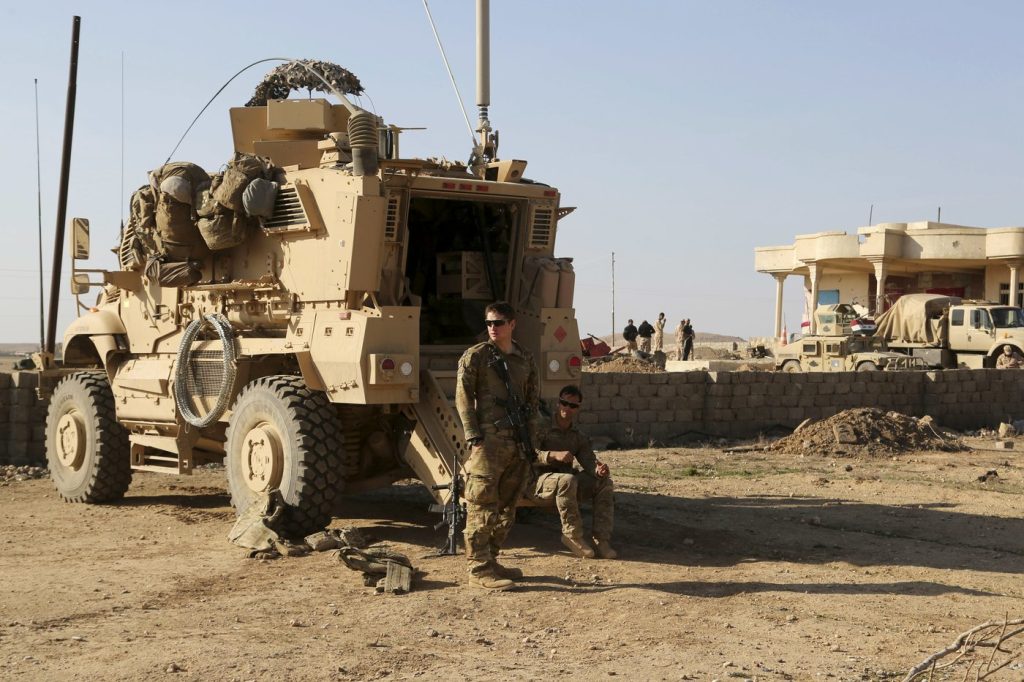BAGHDAD (AP) The recent fall of Bashar Assad in Syria has prompted Iranian-aligned factions in neighboring Iraq to rethink their earlier demands for the withdrawal of U.S. forces from the country. Several Iraqi and American officials have indicated that this shift in sentiment reflects concerns over regional stability and security.
In 2022, the U.S. and Iraq reached an agreement to gradually reduce the U.S. military presence in Iraq, set to conclude by September 2025. This decision followed years of military engagement in the region, where American-led coalitions initially sought to combat the Islamic State group (IS). Political factions in Iraq, especially those aligned with Iran, had been vocal in their calls for a U.S. exit, particularly after a recent conflict in Gaza that sparked widespread discontent against U.S. support for Israel.
The shift, following Assad’s downfall in December due to an offensive led by Sunni Islamist rebels, has led members of the Coordination Framework—a coalition of predominantly Shiite, Iran-aligned political parties—to reassess their calls for U.S. withdrawal. The fall of Assad, viewed as an ally by Iran, has reportedly diminished Tehran's influence in the region, leaving affiliated groups in Iraq feeling increasingly vulnerable to both internal and external threats. Specifically, there are rising fears that IS might exploit any security void created by the current geopolitical chaos.
A member of the Coordination Framework noted that the majority of its leaders now favor maintaining a U.S. military presence in Iraq. The resurgence of IS is a significant concern, as the group might take advantage of a potential withdrawal to regain strength in the region. "Most leaders are afraid of ISIS exploiting the vacuum if the Americans leave Iraq and the situation collapses," the official stated.
Further corroborating these sentiments, a senior official from Iraq's National Security Service remarked that during recent discussions with the government, it was argued that requesting U.S. troop withdrawal was not beneficial at this time. "The calls for U.S. forces to leave have diminished significantly. I expect there will be no withdrawal this year," he expressed.
A senior U.S. defense official confirmed that Iraqi government representatives have informally requested to delay the U.S. military's withdrawal from Iraq in light of the unrest following Assad’s fall. He acknowledged that concerns surrounding IS's potential resurgence due to the chaos in Syria are valid. "ISIS is not imminently going to make a resurgence, but it certainly could," the official asserted.
Despite these internal discussions, the Iraqi government has not publicly declared intentions to extend the coalition's mission. Official spokesperson Bassim al-Awadi mentioned that the timelines governing cooperation with the international coalition remain unchanged, with ongoing meetings occurring between Iraqi officials and coalition representatives.
While a formal request to adjust the withdrawal timeline may be necessary, Prime Minister Mohammad Shia al-Sudani may hesitate to voice such concerns publicly, fearing political backlash for appearing to reverse previous calls for U.S. withdrawal. Iraqi politics often involve navigating a complex relationship between ties to Iran and the United States.
Iraqi armed groups, particularly the Popular Mobilization Forces (PMF), have experienced a tumultuous relationship with U.S. forces in the past. Although these groups fought alongside American troops against IS during its surge in 2014, tensions have occasionally flared. Notably, following recent conflicts, some PMF factions initiated drone attacks against U.S. bases in Iraq, but such hostilities reportedly ceased after the fall of Assad.
Experts, including Renad Mansour from the Chatham House think tank, suggest that the sentiment around U.S. forces in Iraq has evolved significantly since the onset of the current crisis in Syria. The historical experiences of Iraqi leaders, particularly the turbulent aftermath of the 2003 U.S.-led invasion that ousted former leader Saddam Hussein, shape their current perspectives. Mansour pointed out that with the previous rationale for U.S. troop removal—namely, the fight against IS being over—now upended, the Coordination Framework and Iraq's government have become increasingly wary of IS's possible resurgence amid the instability in Syria.










